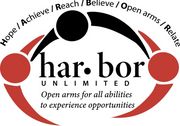3 Ways to Cope With a Traumatic Brain Injury

Every year, as many as 1.5 million people suffer a traumatic brain injury. This type of injury, which is also known as a TBI, stems from a sudden blow to the head or when an object pierces the brain tissue. It results in hundreds of deaths and thousands of hospitalizations every day, making it important for those injured to have reliable support systems in place to help them recover. Here are a few things you can do to help yourself or a loved one recover from a TBI.
What to Know About Understanding and Coping With TBIs
1. Get Plenty of Rest
As with any major injury, the most important factor in recovering from a traumatic brain injury is rest. A mild TBI or concussion can ease off after just two to three days of steady recuperation, whereas more severe injuries can take months of rest.
Getting sufficient sleep is critical to helping the body rebuild lost or damaged brain tissue and store up energy needed for the healing process. If you're a caretaker, make sure you get enough sleep and downtime, as well.
2. Model Calm Behavior

After a concussion or other forms of brain injury, it’s common for those injured to demonstrate changes in personality and mood, sometimes unpredictably. With enough time and proper medical attention, personality changes and mood swings can improve dramatically.
Until then, it’s important to model calm, nonjudgemental behavior for your injured loved one. Not only will they find this reassuring, but it can help them relearn emotional states that may have been impaired by their injury.
3. Consult a Doctor Before Making Changes
After a friend or relative has suffered a traumatic brain injury, you need to discuss every major change in their daily habits or schedules with their physician. For example, if an injured person wants to resume their old exercise regimen or you’re considering putting them on a new medication, you should explore whether they’re ready or if the change could have any negative side effects. Introduce major changes slowly and only after your loved one’s doctor has said that it’s safe to do so.
If someone close to you has experienced a traumatic brain injury, you can count on Harbor Unlimited to support them throughout the healing process. This nonprofit organization is located in Jonesburg, MO, and offers an extensive range of inclusive activities for residents of St. Charles County. They host adaptive athletic events and therapeutic recreation, including climbing and water skiing. Call (314) 856-2665 to speak to a helpful representative about how they can help, or visit them online to learn more about their programs and services.
About the Business
Have a question? Ask the experts!
Send your question

